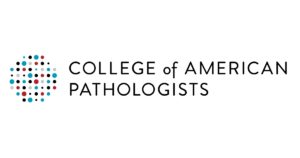READ OUR BLOG
Setting Specimen Transportation Guidelines for Medical Couriers
Outreach medical laboratories have crucial responsibilities when it comes to transporting specimens and ensuring safe and compliant collection, pickup, and delivery. That’s why it’s so important to establish guidelines and follow industry best practices for specimen transportation, especially when training and managing medical couriers.
A lost, damaged, misidentified or otherwise spoiled sample could mean life or death for some patients, so there’s no margin of error. You need to make sure that every part of the process is properly handled and documented, from packaging and temperature control to chain-of-custody tracking and procedures, for what to do if a sample is dropped or leaks.
There are many best practices and compliance requirements to follow, but there are a few resources that can help you check your current policies, training, and procedures against industry guidelines.
Resources for Specimen Transportation Best Practices
 The College of American Pathologists’ Laboratory Master Checklist is an excellent resource for specimen transportation best practices. A crucial part of the checklist is the section on Specimen Collection, Handling and Reporting, which lays out the guidelines for:
The College of American Pathologists’ Laboratory Master Checklist is an excellent resource for specimen transportation best practices. A crucial part of the checklist is the section on Specimen Collection, Handling and Reporting, which lays out the guidelines for:
- Collecting and labeling specimens
- Tracking and managing chain of custody
- Specimen transport and tracking
- Requisitions and receipts
- Documentation of improper specimen submissions
- Results reporting
Transportation of specimens is an important subsection with specific requirements that labs and couriers need to follow.
For example, to ensure compliance with specimen transport and tracking guidelines, the CAP says that labs must make sure that all specimens are properly packaged and labeled to indicate the general nature of the materials transported, and that there are written procedures defining criteria for packaging and labeling. If a specimen isn’t properly labeled or packaged correctly it is important for the courier to record the mistake and notify the provider of the mistake so it can be corrected. Keeping record of such infractions helps to protect your laboratory from potential legal consequences as well.
For specimens submitted to the lab from remote sites, there needs to be a tracking system to record and ensure that all specimens are received. And there needs to be a quality management process in place for monitoring the quality of submitted specimens, correcting identified transportation problems, and improving performance of clients or sites that frequently submit specimens improperly.
These requirements represent just one subsection of the CAP’s checklist, but it is a great resource for ensuring you have the right policies, procedures and training in place. The most recent checklist can be purchased through the CAP website here. The 2017 checklist may be outdated but can still be useful resource can be accessed on the Medical Courier Elite website here.
Other Resources For Overall Courier Best Practices
If your lab is trying to improve your courier operations, there is nothing wrong with seeking information from other labs. Reviewing information from other labs is a great starting point to see how you might can implement some changes, even if modified, to address issues or improve your courier services.
The Mayo Clinic Laboratories website has specimen transportation and courier guidelines that include sections on packaging, shipping documents, shipping instructions, and managing leaks and spills.
Integrating MCE Software & Mobile App In Your Courier Services
You can also simplify compliance by automating, digitizing, and error-proofing your processes with our Medical Courier Elite (MCE) software, which provides all the tools you need to label, track, document and ensure compliance for all the specimens you handle and transport.
For example, using MCE software, and Zebra’s TC26 mobile computer, you can seamlessly track specimens as they’re picked up and transported from the medial office to the lab. Each site visit your courier completes in MCE creates and electronic time stamp of their location, specimens scanned, courier notes, customer signatures and more.
When you can automate your tracking and compliance procedures in this way, and when you follow industry best-practices and compliance guidelines, you’ll not only help ensure that specimens are handled and transported safely, but you’ll build credibility with your customers and affiliates. And you can do it all while improving operational efficiency and minimizing costs and instances of error.
To learn more about how MCE can help you achieve these improvements and to get more expert guidance on how to meet compliance requirements, connect with us at Medical Courier Elite. We’d be glad to schedule a consultation at your convenience and answer any of your questions.
Contact us now through our website or at 877-331-7427 to get started.
Let Us Know How We Can Help
Thanks for your interest in Medical Courier Elite! If you're interested in learning more about our solution and how it can help your business, we'd be happy to schedule a demo, provide a quote or answer any questions you may have.
181 East Evans St. | Florence, SC, 29506
Phone: 843-656-2084 or 877-331-7427
www.medicalcourier.com
contact@medicalcourier.com
